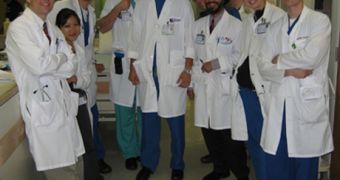Students from a private medical school in Brazil were part of a new scientific study, which was aimed at understanding exactly why soon-to-be doctors were so depressed during their internship years. About 481 people enrolled in the survey and submitted to periodic examinations, performed by ABC Regional Medical School researcher, Sergio Baldassin. His investigations concluded that the young doctors were affected by depression on three levels.
"We used cluster analyses to better describe the characteristics of depressive symptoms – affective, cognitive, and somatic. This is the first study to directly evaluate, in a cross-sectional design, the characteristics of depressive symptoms by applying such clusters," Baldassin explains.
He adds that "There was a high prevalence towards depressive symptoms among medical students, particularly females, mainly involving the somatic and affective clusters. Of the students in our study, 38% had at least 10 of a possible 63 symptoms of depression."
The affective symptoms refer to feelings of sadness and dissatisfaction, to crying and suicidal thoughts, as well as to the students' levels of irritability and social withdrawal. The somatic cluster includes such manifestations as insomnia, loss of weight, fatigue, and a significant decrease in intimate relationships. Finally, the cognitive cluster measured the participants' levels of dislike of self, pessimism, indecisiveness, as well as their sense of failure and guilt.
Balsassin found that these feelings were present especially in the "pre-internships" periods, when students were more likely to think that they had too little knowledge, and that the responsibility of taking care of other people was something they could not handle.
"The increased depression scores during the internship period of medical school are associated with a decrease in student health, and this is probably the period when professors and educators should try to be most aware of suicidal thoughts and risk in their students," says the author, adding that the study also revealed that students who had a medic as a parent were less likely to get depressed during these difficult times.

 14 DAY TRIAL //
14 DAY TRIAL //